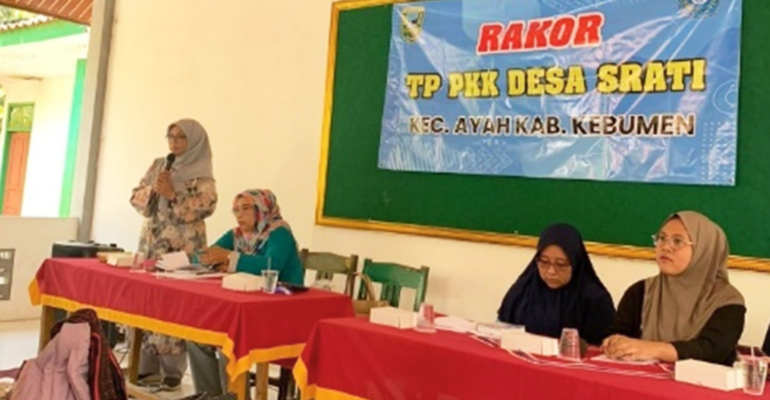IPB University Lecturer Introduces How to Utilize Low Fish into Fish Flour in Kebumen Regency

IPB University lecturer, Prof Tri Wiji Nurani, together with students of the Thematic Real Work Lecture (KKNT) Innovation held a socialization of the utilization of low fish into fish flour to enrich the protein content in food products in Srati Village, Ayah District, Kebumen Regency, Central Java. The participants were the Srati Village Family Welfare Empowerment Team (TP PKK).
Prof Tri Wiji Nurani explained that this socialization aims to introduce and improve the community’s understanding of the utilization of low fish such as lea fish, which is caught by many Kebumen fishermen, into products with economic value.
She said, so far, low fish is considered as waste because it has low commercial value, so it is often discarded or stockpiled during the peak fishing season. Fishermen focus more on high economic value fish such as white pomfret, shrimp, and lobster.
“Kebumen Regency produces quite a lot of low fish production and so far it has not been utilized properly. Utilization of low fish into fishmeal can increase added value and can be used for protein enrichment in food products,” she said.
On the other hand, Prof Tri said, there are still toddlers with stunting conditions in this district. The utilization of small fish into fishmeal for protein enrichment in food products, especially for toddler consumption, is expected to be one of the solutions to prevent stunting in Kebumen Regency.
The utilization of small fish into fishmeal has been carried out by Prof Tri and other researchers who are members of the National Collaborative Research team.
The team consists of Prof Tri Wiji Nurani, Dr Retno Muninggar, Julia Eka Astarini, MSi (Lecturer of the Department of Fisheries Resource Utilization of IPB), Rianti Dyah Hapsari (Lecturer of IPB Vocational School), Ririn Irnawati (Lecturer of Sultan Ageng Tirtayasa University), and Sri Hartati (researcher of the National Research and Innovation Agency).
Protein enrichment from fish flour in food products has been tested on lanting products as a local superior product of Kebumen Regency.
Prof Tri explained that the process of making fishmeal from loose fish includes several stages, starting from weeding, washing, and boiling. “After boiling, the fish is baked and then ground with a grinding machine until it becomes fine flour. The final stage is sieving, to ensure the fishmeal produced has a fine texture,” she explained.
In the question and answer session, one of the participants asked about the types of fish that can be made into fishmeal. “Basically, all types of fish can be processed into fishmeal, it’s just that this program is in order to utilize fish that has been wasted,” replied Prof Tri Wiji.
Tarwiyah, Chairperson of the Srati Village PKK Movement, welcomed this activity. She also emphasized that she would practice making fish flour within the family. The fish flour made will be added to the food products they consume. (*/Rz) (IAAS/Hap)



